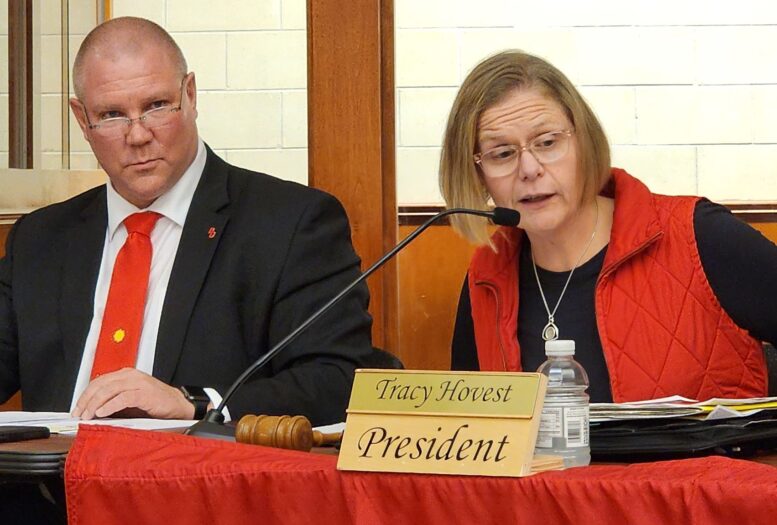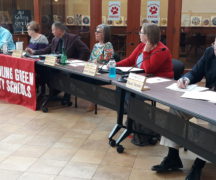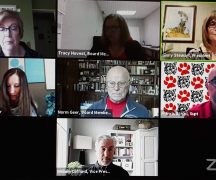By JAN McLAUGHLIN
BG Independent News
Bowling Green Board of Education voted to put an income tax levy for operating funds back on the ballot in May. But this time, the 0.75% income tax will be for five years, rather than a continuing period of time.
On Tuesday evening, four board members voted in favor of the ballot issue, and one abstained.
If the levy passes, a series of serious cuts will be avoided. If the levy fails, the district will face reductions in staff, athletics and extra-curriculars.
High school teacher Jeff Nichols spoke to the board at the beginning of the meeting as president of the BG Educators Association.
Knowing that cuts will be necessary if the levy fails, Nichols said, “it would be the standpoint of the association to try to preserve classroom situations.” While Nichols acknowledged that students gain much from sports and extracurriculars, it’s the classroom education that is most important.
Superintendent Ted Haselman noted that the levy attempt in November failed by just 108 votes – 49.63% to 50.37%. The district’s needs have not changed since then, he stressed.
“We cannot have what we cannot pay for,” Haselman said.
District voters will be made aware prior to the May election of exactly which programs and personnel will be cut if the levy fails.
“The list will be extensive,” Haselman said.
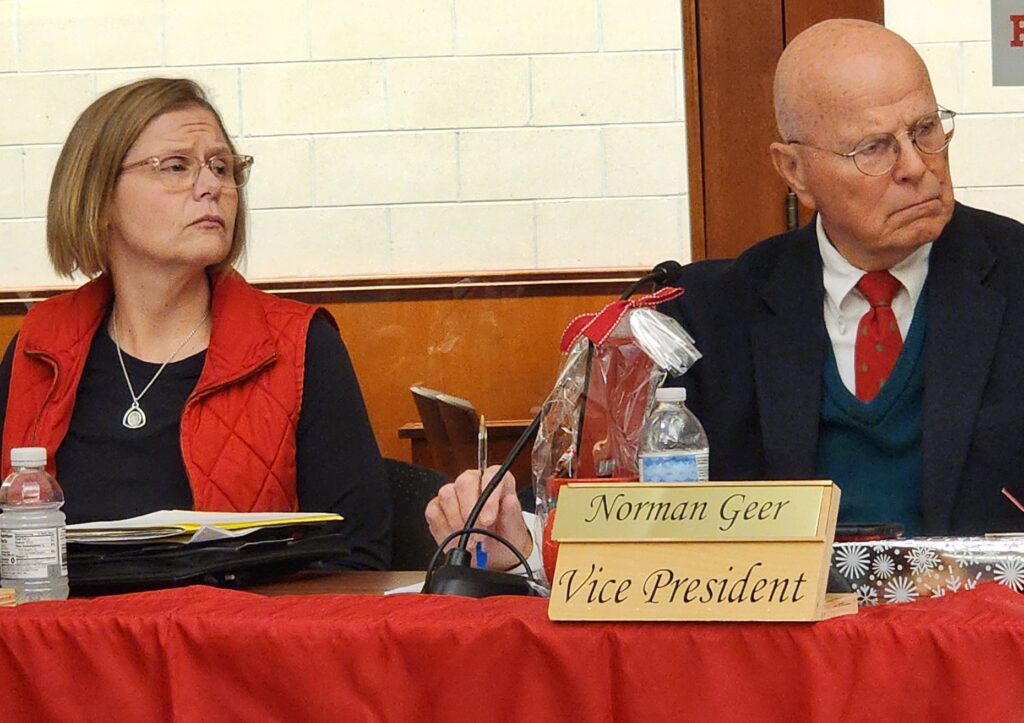
The board took steps Tuesday evening to make the levy more palatable to some voters. For those who believe that no levy should be for a continuing period of time, the board agreed to limit the levy to five years.
For those who have demanded that the district use its pipeline tax revenue for operating expenses, rather than for building maintenance costs, the board agreed to shift $1 million of the pipeline money into operating funds – thus reducing the necessary cuts to $2.8 million rather than $3.8 million.
And for those who have been clamoring for more transparency of district finances, the new treasurer, Matt Feasel, has been making the district’s monthly check register available for public viewing.
“I realize there are many opinions out there – social media is full of them,” board President Tracy Hovest said. But with rising costs and declining revenues, the district has two choices – budget cuts or passing a levy, she said.
“We have been discussing this openly in public for three years,” Hovest said.
“No one likes paying more taxes,” she said. But reducing personnel means bigger class sizes, loss of programs, and demoralizing staff.
“We must choose the path that serves the long-term interest of our district,” Hovest said.
The board discussed the term options for the levy – focusing on five years, seven years, and a continuing period.
The board, superintendent and treasurer were all in agreement that this ballot issue should be for five years.
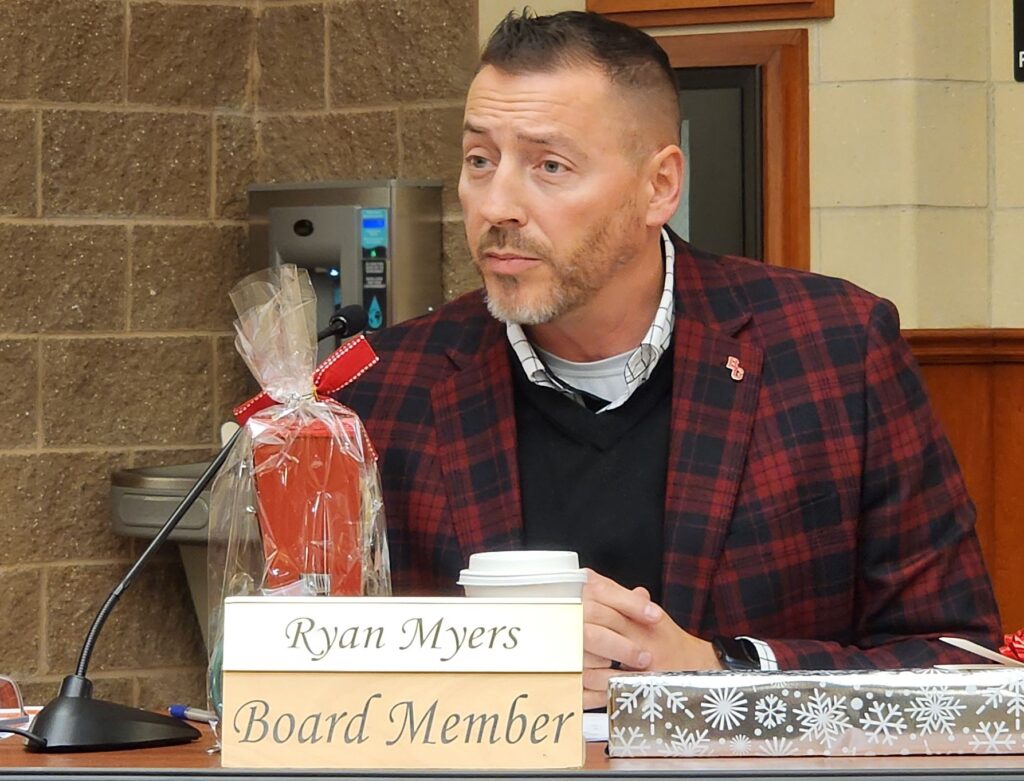
“We’ve really focused on building trust in the community,” board member Ryan Myers said.
“There are no secrets,” Myers said about the transparency of the district’s finances under Feasel. If voters support a five-year levy, they can later decide if the district deserves more, he said.
Board member Ardy Gonyer agreed the levy is necessary. “We absolutely have to put the levy back on.” He also supported the shortest term of five years. “Let’s give the folks a chance to see the transparency.”
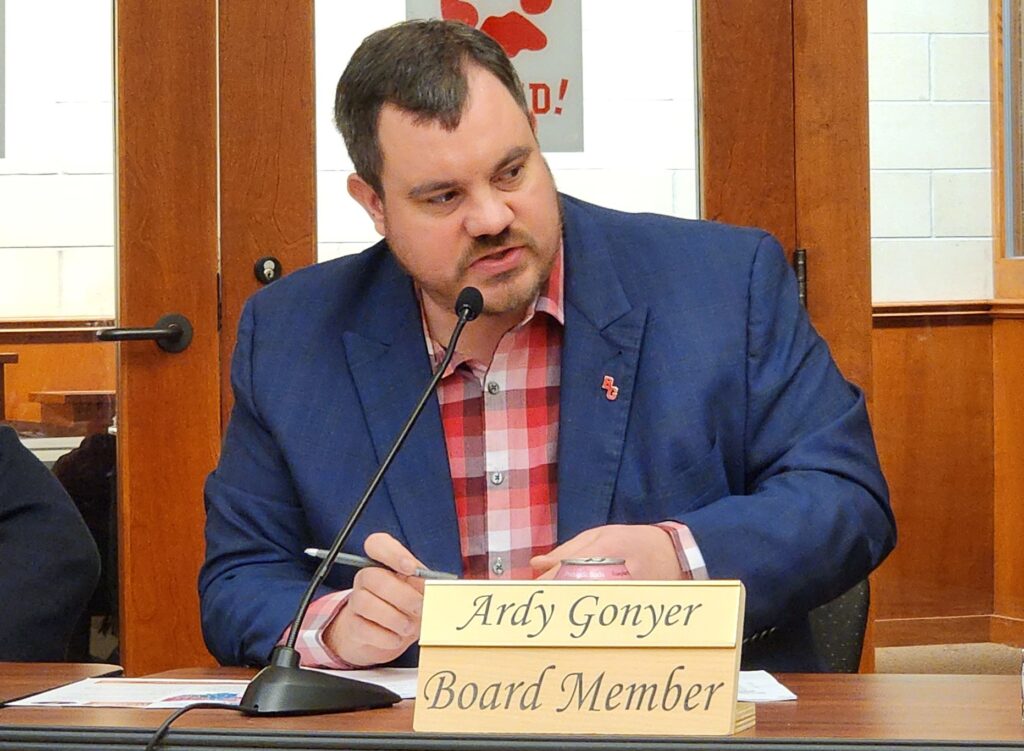
Haselman, Feasel, Hovest, and board Vice President Norm Geer also all favored the five-year option.
While she would prefer to have a continuing levy, Hovest acknowledged, “that might be a stumbling block for some people.”
Board member Peggy Thompson said she supported the five-year limit, though she hoped the district could wait longer before returning to the ballot.
However, when it came time for a vote, Thompson abstained from casting a vote. Elected officials are encouraged to cast “yes” or “no” votes, with abstentions reserved in cases of conflicts of interest.
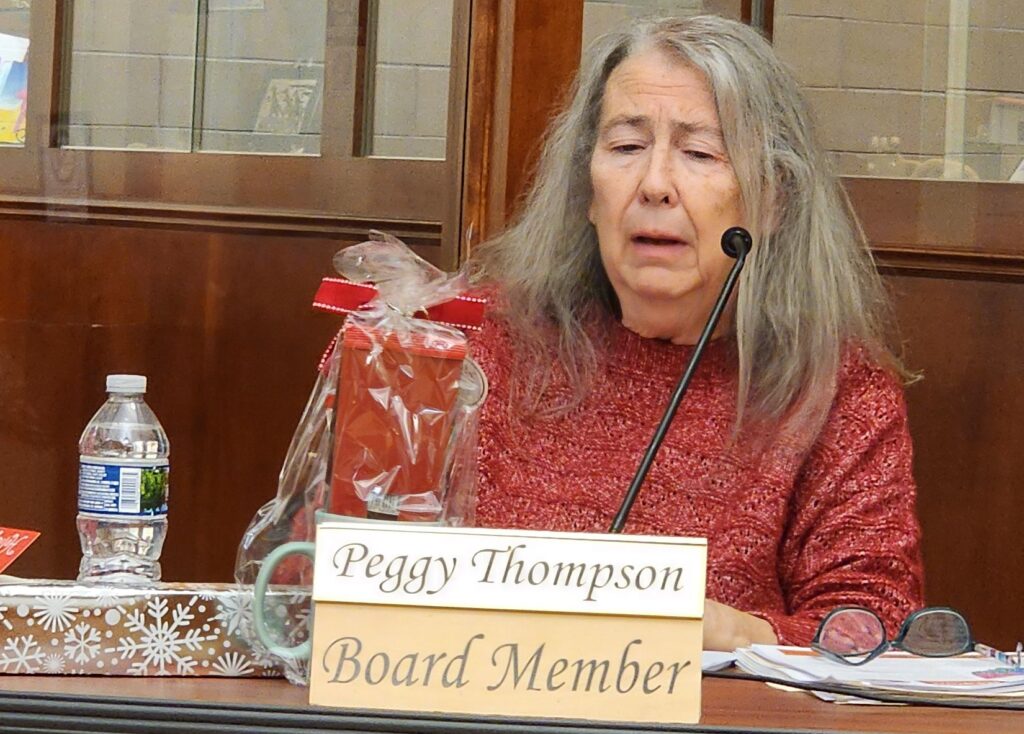
When asked after the meeting, Thompson said she had no conflict of interest and should probably have voted “no.” With her knowledge of finances, Thompson said it’s clear that the district needs the funds.
“I was hoping to have time to gain more trust in things,” and rally the community first, she said. “There’s too much in the balance.”
After the meeting, Hovest commented on the less than unanimous vote.
“I would have loved full consensus of the board,” she said.
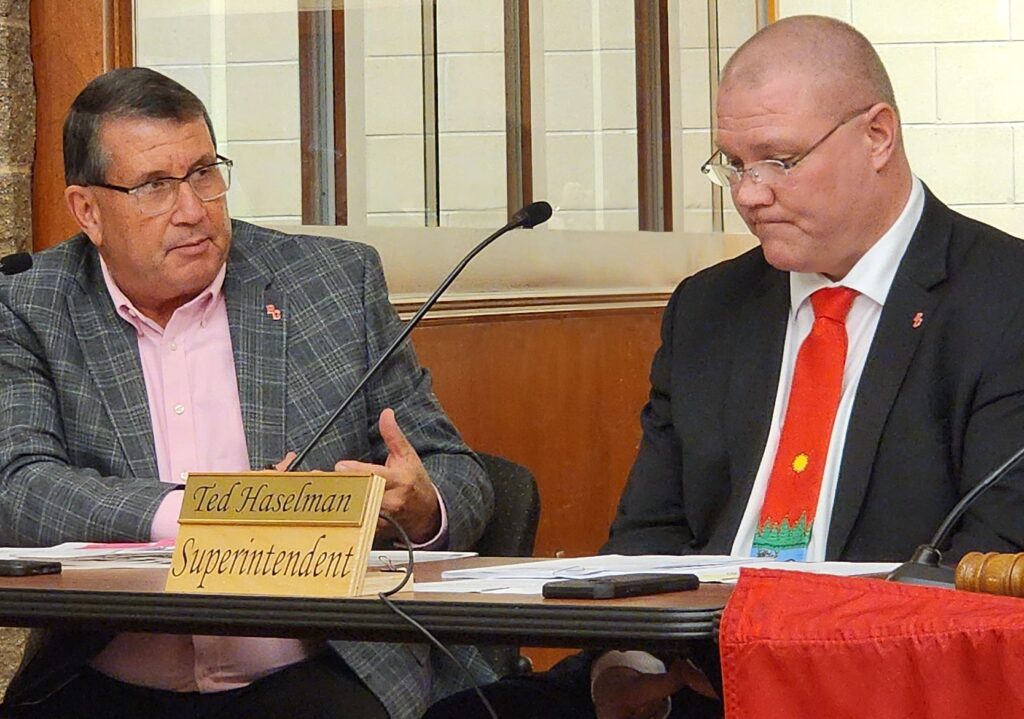
The board also discussed the district’s options if the levy fails in May. Feasel offered three possible plans:
- Make cuts totaling $3.8 million.
- Move $1 million of pipeline tax revenue into operating funds, and make cuts totaling the other $2.8 million.
- Move $1.5 million of pipeline money into operating funds, and make around $2 million in cuts.
The board has been reluctant in the past to use pipeline funds for operating expenses, since that money has been set aside for maintenance needs, which have been ranging from $2 million to $4 million a year.
Four board members supported the middle option of moving $1 million in pipeline money to operating costs. That was the most “judicious and responsible” option, Gonyer said.
Thompson favored the third option, moving more pipeline money into operations.
Feasel warned of the depreciating value of the pipeline, and the lack of sustainability from that funding which averages $1.2 million a year. And Hovest reminded of the growing maintenance expenses at the district’s three aging elementaries.
Also at Tuesday’s meeting, three citizens spoke in favor of the district trying the levy again in the spring.
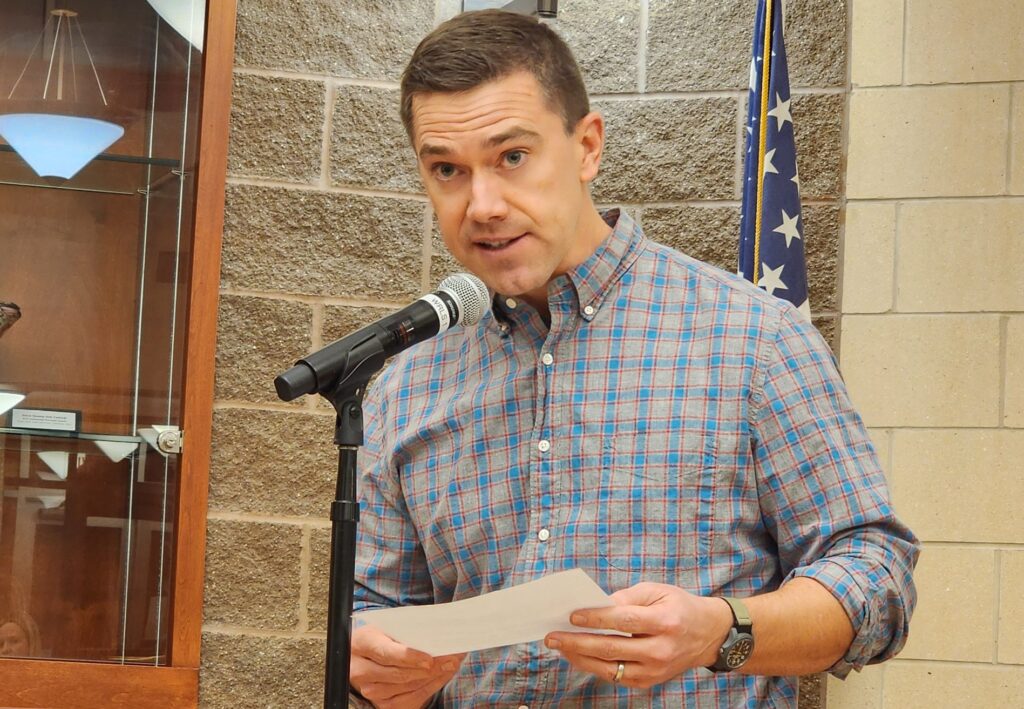
“This operating deficit is a critical problem that requires a real world solution,” Dr. Ryan Phipps said. “It’s frustrating to hear the same individuals who villainize our administration offer options available to the district other than going back to the voters again to pass an operating levy, or deep cuts to our staff and services which will have an enormous negative impact on students.”
Phipps was critical of suggestions that the district seek private donations to cover operating expenses. “It costs $105,000 to run our district every day. This is not a serious solution,” he said.
“Increasing enrollment is not a magic bullet either. If it was, Perrysburg, which has too many students, would not be pleading for operating funds,” Phipps said. “What’s more, we can be certain we will not pick up students from other districts if we continue to fail levies. Families are not racing to enroll their children in a district that does not have the necessary funds it needs and that lacks community support.”
Phipps also pointed out that the district last received new operating funds from voters in November 2010 – more than 14 years ago.
“It’s clear to me that this is a reasonable request and I hope our community will act on the urgency of this situation,” he said.
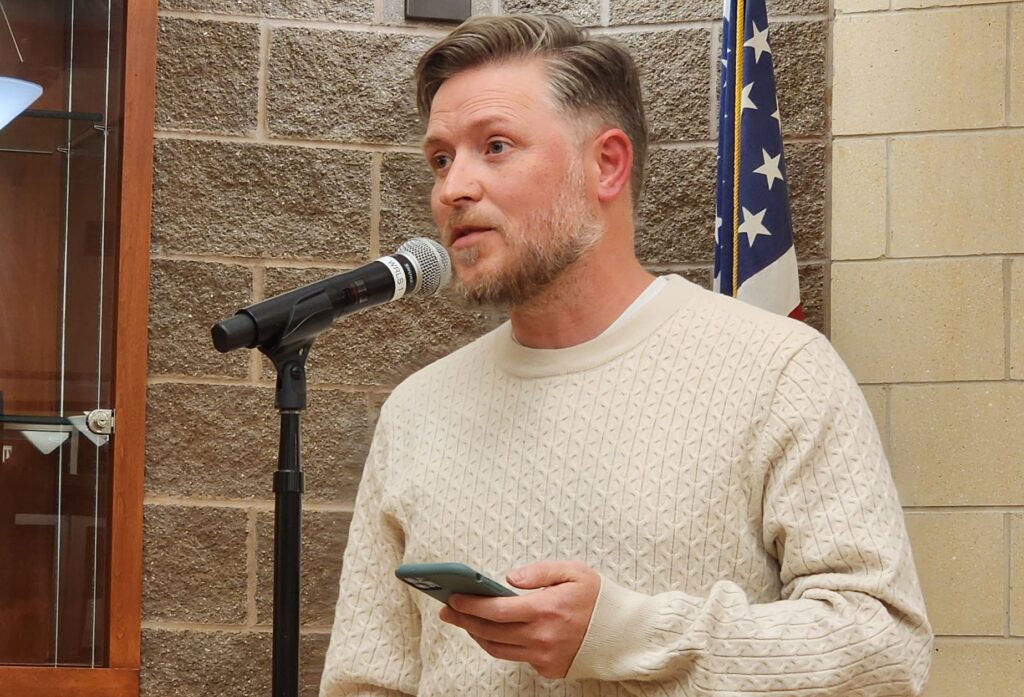
Trevor Jesse assured the school board that much of the community supports the effort to raise operating funds.
“It might not be evident from participation this evening or from social media comments, but there are a ton of people in our community who want you to put the operating issue back on the ballot as soon as possible,” Jesse said. “We understand the urgency and want to make sure our schools have the resources they need to succeed.”
As a parent of a high school student, Jesse talked about the impact of the large cuts that will be necessary if another levy fails.
“It is critical that each and every one of us help our friends and neighbors understand how important this funding is so that the next attempt to pass the district’s operating levy is successful,” he said.
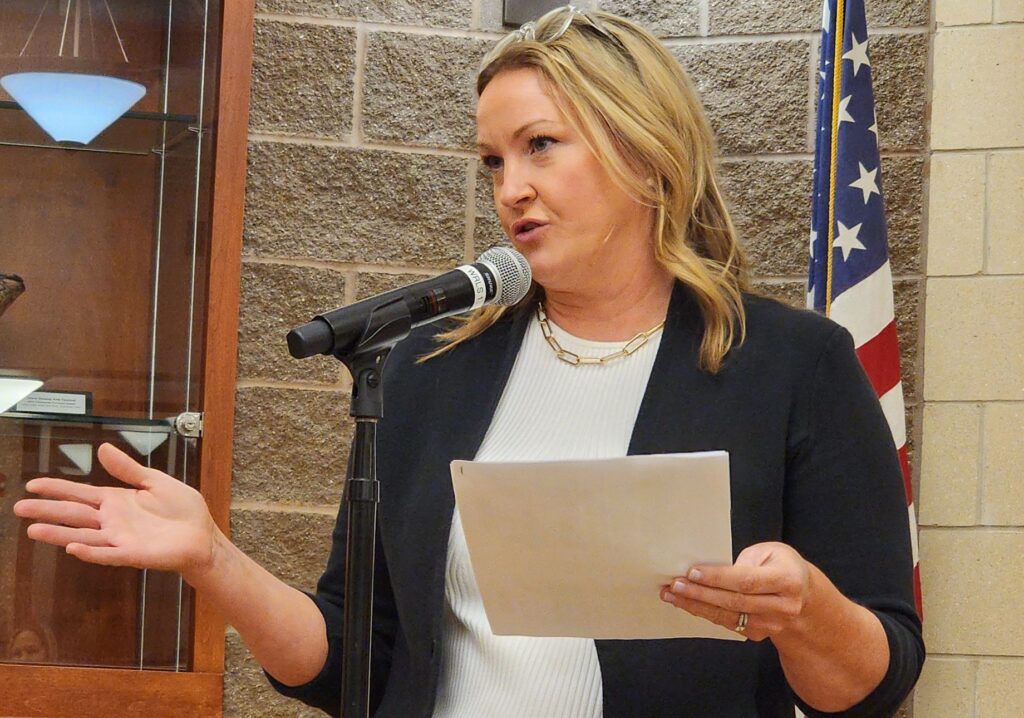
Next Amy Simmons shared her disappointment in some voters who said the operating levy request was too soon after the building bond issue last fall.
“It seems we have forgotten how many times our community has rejected the district’s requests for support over the last decade – five times,” Simmons said. “Had we supported the initial ask seven years ago, the operating levy on the ballot would not have had to follow so quickly.”
Simmons noted that Bowling Green City Schools has one of the lowest combined school income and property tax rates in the county – with the new high school included. When compared to the other 15 school districts in Wood County, BG has the fourth lowest school income and property taxes.
“Every single BGCS resident depends on and benefits from a strong school district,” she said. “Our history of failed levies wrecks our district’s ability to compete with surrounding districts for students – and undermines our community’s ability to grow and compete.”

